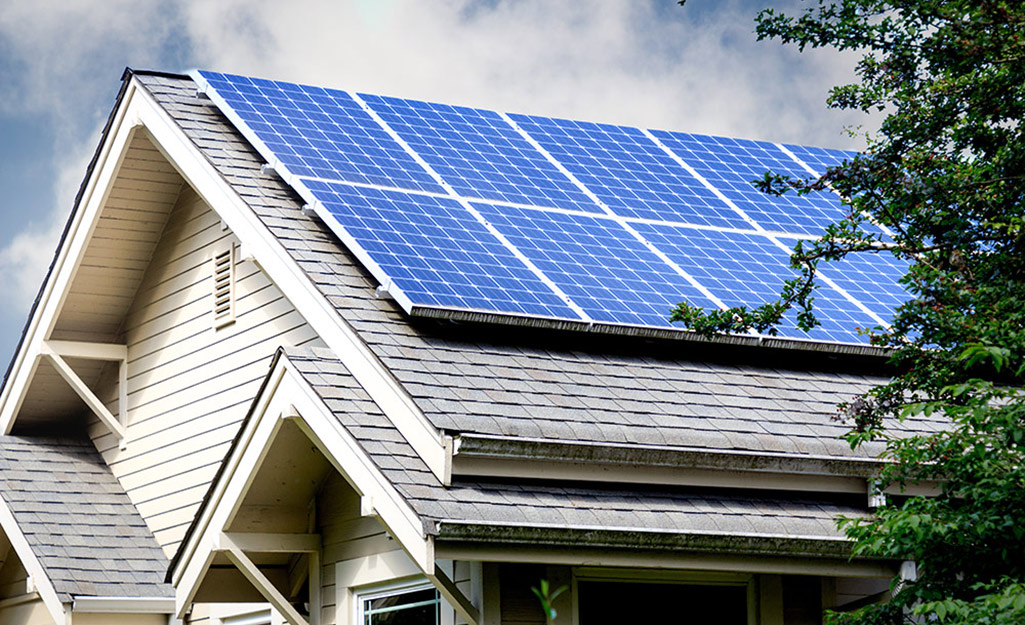Top 5 Pros and Cons of Installing Solar Panels on Your Roof
Solar panels have become increasingly popular as homeowners look for ways to reduce energy costs and adopt environmentally friendly practices. While the benefits of solar panels are compelling, it’s important to consider the potential drawbacks before making the investment.
Rescue My Roof has been a leader in the roofing industry for over a decade. We’re here to walk you through the potential advantages and disadvantages of installing solar panels on your roof so that you can make the best decisions for your home.
In this article, we’ll explore the pros and cons of installing solar panels to help you determine if they’re the right choice for your home.
The Top 5 Pros of Solar Panels

Solar panels are a game-changer for homeowners looking to save money and embrace sustainability. They provide a clean, renewable energy source that can reduce monthly utility bills and even increase your home’s value.
Beyond the financial perks, solar panels contribute to a greener planet by cutting down on carbon emissions. With government incentives and advancing technology making solar energy more accessible than ever, it’s no wonder many homeowners are making the switch.
Let’s dive into the key benefits of installing solar panels and why they might be the right choice for your home.
1. Reduced Energy Costs
One of the most attractive benefits of solar panels is the potential for significant savings on your energy bills. By generating your own electricity, you rely less on the grid, which can lead to lower monthly costs—especially in sunny regions.
2. Environmental Benefits
Solar energy is a clean, renewable resource that reduces your carbon footprint. By using solar panels, you’re contributing to a more sustainable future by lowering greenhouse gas emissions and minimizing your reliance on fossil fuels.
3. Tax Incentives and Rebates
Governments often provide financial incentives to encourage solar panel installations. Federal tax credits, state rebates, and other programs can significantly offset the initial cost, making solar panels more accessible to homeowners.
4. Increased Property Value
Homes with solar panels often have higher resale values. Buyers are increasingly interested in energy-efficient homes, and solar panels can be a key selling point.
5. Energy Independence
Installing solar panels allows you to generate your own electricity, reducing dependence on utility companies. For those living in remote areas or regions with unreliable energy grids, this can provide peace of mind and consistent access to power.
5 Cons of Solar Panels

While solar panels offer numerous benefits, they’re not without their drawbacks. From high upfront costs to varying efficiency based on weather, it’s important to understand the challenges that come with installing a solar energy system.
Factors like your home’s location, roof space, and budget can significantly impact whether solar panels are a practical choice for you. Before making an investment, it’s essential to weigh these potential downsides to ensure they align with your energy needs and long-term goals.
Here are some of the key cons to consider.
1. High Upfront Costs
The initial investment for solar panels can be substantial, including the panels, installation, and additional equipment like inverters and batteries. While incentives can help, the upfront expense remains a barrier for some homeowners.
2. Weather Dependence
Solar panels are most effective in sunny conditions, which means their energy production can be reduced on cloudy days or during winter months. While they still work in less-than-ideal conditions, efficiency may vary.
3. Space Requirements
For homes with limited roof space or shading from trees, it may be difficult to install enough panels to meet your energy needs. In some cases, ground-mounted systems may be an alternative, but they require additional space.
4. Maintenance and Repairs
Solar panels are generally low-maintenance, but they still require occasional cleaning and monitoring to ensure optimal performance. Inverters and batteries may also need replacement during the system’s lifespan, adding to long-term costs.
5. Long Payback Period
While solar panels can eventually pay for themselves through energy savings, the payback period can take years. For homeowners who plan to move in the near future, the investment may not make financial sense.
Is Solar Right for You?

When deciding whether to install solar panels, consider factors like your location, energy usage, and budget. Solar panels are ideal for homeowners in sunny regions with high electricity costs, but they may not be as effective in areas with limited sunlight or low energy needs. Consulting with a solar expert can help you evaluate your home’s suitability and potential savings.
Installing Solar Panels
Solar panels offer an exciting opportunity to save money, reduce your environmental impact, and gain energy independence. However, they come with challenges, including upfront costs and weather-related limitations. By carefully weighing the pros and cons, you can make an informed decision about whether solar panels are the right investment for your home.
Whether you choose solar now or down the line, understanding your options is the first step toward a more sustainable and cost-effective future.
Learn more with “Adding Solar Panels to Your Roof: What You Need to Know” and “Solar Roofs: A Comprehensive Guide.”
Are you dealing with an old or leaking roof? Rescue My Roof can help. Contact us today to get a free estimate.


